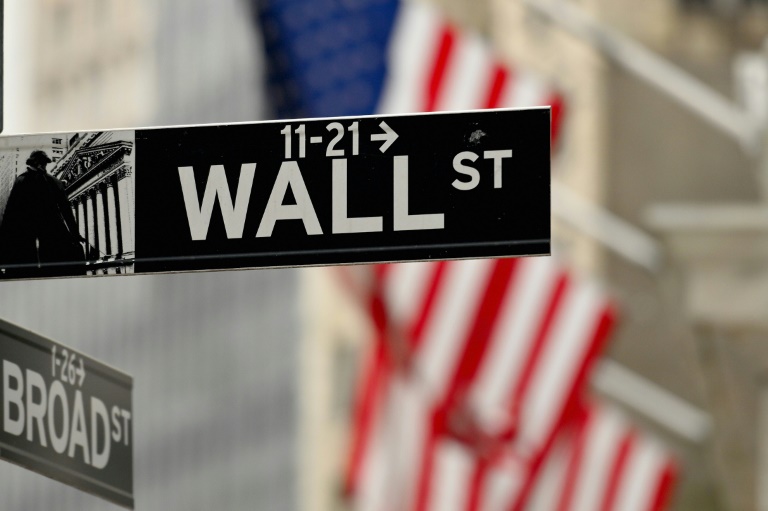
London (AFP) - Major stock markets fell Tuesday as investors fret over central bank actions against inflation and the World Bank cut its global economic growth forecast following Russia's invasion of Ukraine.
The World Bank slashed its growth estimate from 4.1 percent to 2.9 percent, warning that "recession will be hard to avoid" in many countries.
"The world economy is expected to experience its sharpest deceleration following an initial recovery from global recession in more than 80 years," the Washington-based institution said in its Global Economic Prospects report.
Craig Erlam, analyst at online trading platform OANDA, said the markets gave back the bulk of Monday's gains "in a sign of ongoing uncertainty as to the direction of equity markets and the economy".
Stock markets in London, Paris and Frankfurt, already in the red earlier, were dragged down further by a weak opening on Wall Street.
Forex.com analyst Fawad Razaqzada warned that markets would continue on their downward trend for some time to come as central banks wind down easy money policies in efforts to combat soaring inflation.
"We are still in a bear market and with central banks ending (quantitative easing) and reducing their balance sheets, the good days of the stock markets may well be behind us," he said.
"Keep your seat belts fastened because there will be more turbulence ahead, as central banks are forced to withdraw support."
Earlier in Asia, Sydney's stock market had closed down more than one percent after the Australian central bank announced a bigger-than-forecast rate hike to quell inflation.
UK PM's no confidence vote
Elsewhere, the pound fell against both the dollar and euro, even though British Prime Minister Boris Johnson survived a vote of no confidence from his own Conservative MPs.
"Although the leader came out victorious, the triggering of the confidence vote itself along with the fact that 41 percent of Tory MPs failed to back him are both politically corrosive, leaving the prime minister wounded," said Victoria Scholar, head of investment at Interactive Investor.
"History suggests that this could mark the beginning of the end of his time as prime minister."
Johnson has been under fire for months after a string of scandals, including the so-called "Partygate" controversy over Covid lockdown-breaking events at Downing Street, where the prime minister was found to have broken the law.
His Conservative government is also under pressure over its handling of a cost-of-living crisis in the UK after the country's inflation rate soared to the highest level in four decades.
An easing of Covid lockdown measures in China is helping to offset some of the worries over inflation, which is being fuelled by high oil prices following the invasion of Ukraine by key crude producer Russia.
Key figures at around 1340 GMT
New York - Dow: DOWN 0.6 percent to 32,704.86 points
London - FTSE 100: DOWN 0.2 percent at 7,593.32
Frankfurt - DAX: DOWN 1.1 percent at 14,493.48
Paris - CAC 40: DOWN 1.1 percent at 6,477.83
EURO STOXX 50: DOWN 1.2 percent at 3,793.83
Tokyo - Nikkei 225: UP 0.1 percent at 27,943.95 (close)
Hong Kong - Hang Seng Index: DOWN 0.6 percent at 21,531.67 (close)
Shanghai - Composite: UP 0.2 percent at 3,241.76 (close)
Dollar/yen: UP at 132.69 yen from 131.88 yen late Monday
Euro/dollar: DOWN at $1.0690 from $1.0699
Pound/dollar: DOWN at $1.2526 from $1.2528
Euro/pound: DOWN at 85.34 pence from 85.37 pence
Brent North Sea crude: DOWN 0.1 percent at $119.41 per barrel
West Texas Intermediate: DOWN 0.1 percent at $118.40 per barrel
burs/spm/lth







